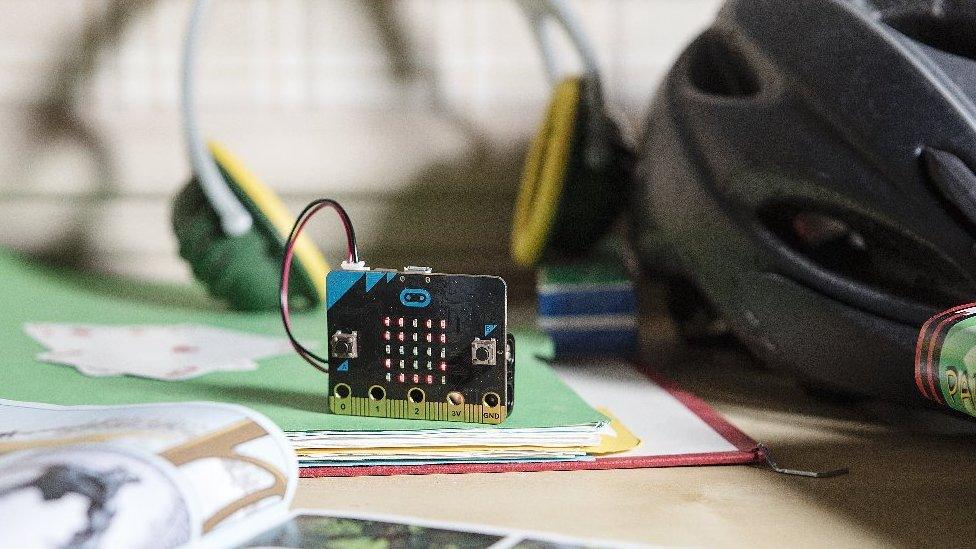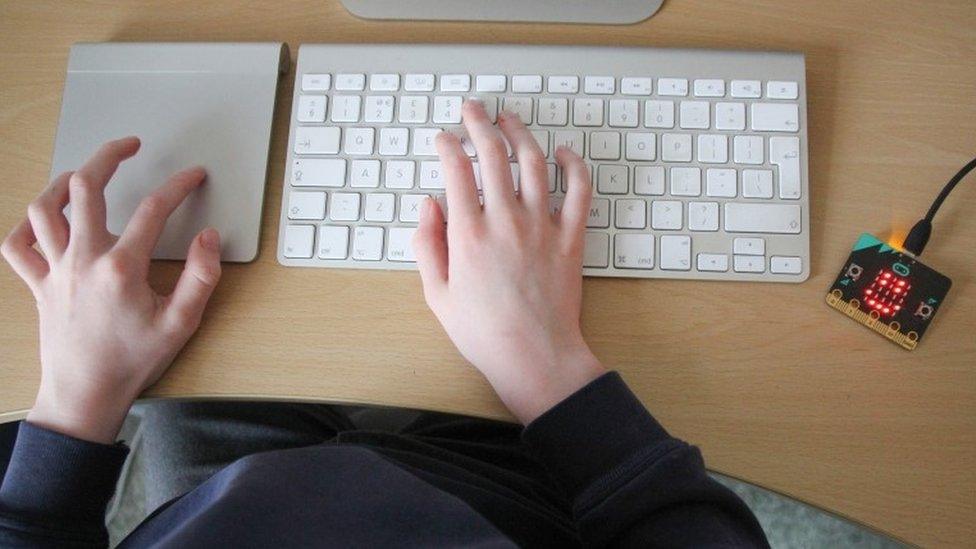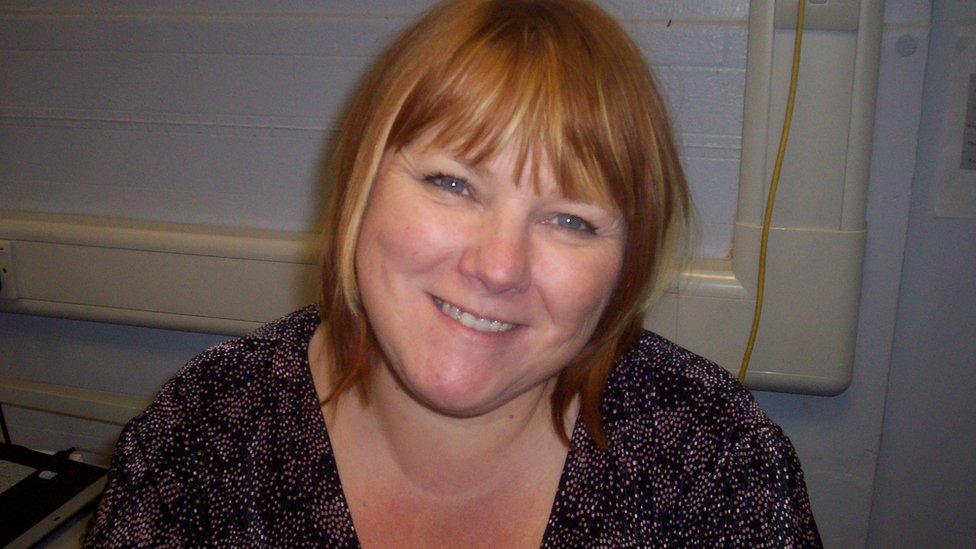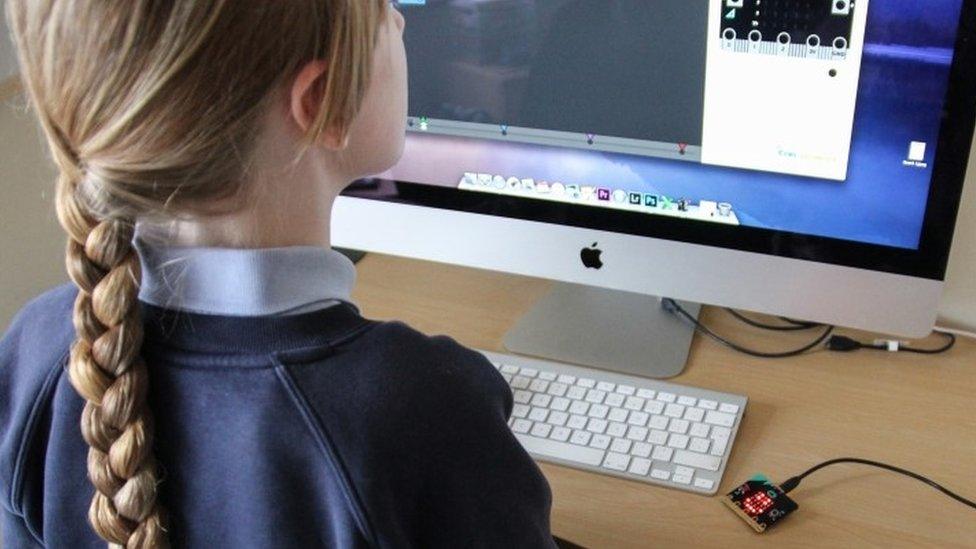Micro Bit - the view from the teachers
- Published

The Micro Bit experienced some delays in getting to schools
The Micro Bit, conceived as the centrepiece of the BBC's Make it Digital season last year, is now going to live on as a device that can inspire computing creativity in the UK and further afield.
But what of its original purpose as a gadget to get a million Year 7 children to think differently about computing?
It is fair to say there were plenty of teething troubles with the project.
The hope had been that it would arrive in September 2015, at the beginning of the school year, but repeated delays meant many schools were not able to hand the Micro Bits over to Year 7 pupils until the beginning of the summer term.
I heard plenty of grumbling from teachers that this was too late to integrate the device into the curriculum and in any case they had not been given time to prepare teaching materials.

Most teachers agree the children enjoyed learning with the Micro Bit
There was also a lively discussion about whether it was really a good idea to hand over the Micro Bits to the children to take home - as the project's organisers instructed - rather than keeping them in the classroom.
Years ago, I saw a similar debate in Nigeria, where the One Laptop Per Child project encouraged schools to let children take the laptops home, while the rival Intel Classmate scheme saw the computers locked away at the end of each day.
The BBC says the Micro Bit has already been a success in changing attitudes to computing, and its research suggests girls in particular are now more inclined to think of studying the subject.
But what is the view from the schools that have had to make it work?
I've been speaking to three teachers.

How has the Micro Bit been received in your school?
Amy McGarry-Thickitt, Ashfield School, Nottinghamshire
The Micro Bits have gone down very well in our school, students are really enjoying using them and staff have found them easy to teach with.
Lucy Bunce, Y Pant Comprehensive, Pontyclun, Glamorgan
We found they were much easier to use than the Raspberry Pis that we had tried earlier - they made a very quick impact and were integrated very easily into the network
Talking to a few pupils, all said they'd like to do more Micro Bit work in lessons this year, which I think is something we'll pick up on.

Ms Dean said that the delay in roll-out meant they are now being used by older children
Paula Dean, Pleckgate High School, Blackburn
The students are very excited about the Micro Bit. We as computing teachers are also excited because this is a simple way to teach quite complex understanding.
The students get real-time visual feedback on their programming, which makes it very exciting.
They like that the Micro Bit tells them where there is an error in their coding as well.

Did the late arrival of something intended for the beginning of Year 7 have an impact?
Amy McGarry-Thickitt: Yes, the late arrival has meant that we are only now teaching with them (current Year 8, last year's Year 7) as we didn't have time to write schemes of work and roll it out, so it had to be postponed.
Lucy Bunce: They arrived in March, right in the middle of marking season, so there was no time for the teachers to play around with them and lessons were not as well planned as we would have liked.
But we did find lots of good material online.
Paula Dean: Yes, it meant in our school that we didn't have the time to use them in Year 7.
We are now using them during Year 8 lessons, but also in Year 9 lessons too.

Was there any noticeable impact on girls' attitudes to computing?
Amy McGarry-Thickitt: Girls seem to be engaging more, and more girls than boys seem interested in taking them home.

Miss Bunce wonders if the devices will end up "being stuck in a drawer"
Lucy Bunce: Well, we took a group of girls to a digital festival and they gave good feedback - but they were perhaps a self-selecting group.
We have finally got four girls to do computing GCSE, out of a total of 23 students.
Paula Dean: The girls are more engaged due to the visual aspect of the Micro Bit. They can see how this could be used in the real world.

Were the children allowed to take the devices home?
Amy McGarry-Thickitt: While we are working on them in school, we have kept hold of the Micro Bit - but at the end of the topic we are allowing students to take them home if they choose to.
Lucy Bunce: Yes they took them home at the end of the summer term. We need to find out what they did with them - my fear is that many may have ended up being stuck in a drawer.
In retrospect, we wonder whether we should have held them back and given them to this year's Year 7s.

Some schools let children take the Micro Bit home after lessons finished
But a few pupils have told me they played with them in the holidays.
One said he'd connected it to his phone and made a selfie stick with it, and another took it on the plane to Croatia and had all the flight attendants playing.
Paula Dean: The children have not yet taken them home. In our computing lessons, we have introduced them to programming using it.
Once they are confident in using the website and the different programming languages, then the Year 8 students will take them home.
We didn't want them to take them without knowing how to use them, because we feared they would just get stuck in a drawer never to be used again.

What happens next? Do this year's Year 7s get them, or do the children who've already got them carry on using them in class?
Amy McGarry-Thickitt: Next year, we will be using any that we have left with other year groups. We would like to run an after-school club for the children who take them home.

Amy McGarry-Thickitt says Micro Bit classes at her school had to be postponed
Lucy Bunce: We could not afford to buy them for all of the year, but we are considering getting several per class.
Paula Dean: We are going to be running a club where students can make music with them.
The idea is to have a music gig to present in assemblies.